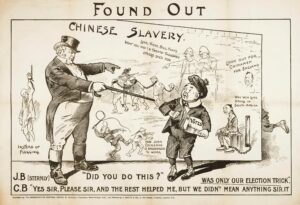S. 237: Public Safety Officer Benefits Act
Amends the Omnibus Crime Control and Safe Streets Act of 1968 to provide public safety officer benefits for exposure-related cancers.
Short Title
This Act may be cited as the “Public Safety Officer Benefits Act of 2025”.
Findings and Purposes
(a) Findings — Congress finds that—
- public safety officers are at an increased risk of developing exposure-related cancers due to their hazardous duties;
- the Department of Justice has established a fund to provide benefits for certain law enforcement and fire personnel who have died or become disabled as a result of exposure-related cancers; and
(b) Purposes — The purposes of this Act are—
- to provide public safety officers with access to benefits for exposure-related cancers;
- to ensure that the Department of Justice has the necessary resources to administer the Public Safety Officers’ Benefits Program; and
Definitions
(a) In this Act, the following definitions apply—
- exposure-related cancer means any cancer that is determined by the Secretary to be caused by a hazardous duty performed in the line of employment as a public safety officer;
-
line of duty action means—
- an action in which a public safety officer engaged at the direction of the agency served by the public safety officer; or
- the public safety officer is authorized or obligated to perform;
;
Public Safety Officers’ Benefits Program
(a) Establishment — The Secretary shall establish a program to provide benefits for public safety officers who have died or become disabled as a result of an exposure-related cancer;
- the program shall be administered by the Department of Justice;
-
the program shall provide eligible public safety officers with—
- benefits equivalent to the total and permanent disability compensation payable under section 833 of title 5, United States Code, if such officer is deceased; or
- benefits for lost wages, funeral expenses, and other expenses related to the death or disability of the public safety officer;
;
Eligibility
(a) Generally — A public safety officer shall be eligible for benefits under this program if—
- the officer died or became disabled as a result of an exposure-related cancer;
- the officer was engaged in line duty at the time of death or disability; and
;
(b) Determinations — The Secretary shall make determinations regarding eligibility for benefits under this program;
-
such determinations shall be based on a review of—
- the death certificate or other documentation verifying the cause and circumstances of death;
- any medical records or reports related to the death or disability;
- the public safety officer’s employment history and qualifications;
;
;
;
;
Effective Date
(a) Generally — This Act takes effect on the date that is—
- one year after the date of enactment of this Act;
;
;
Regulations
(a) In general — The Secretary shall issue regulations implementing this part;
- the regulations shall be issued in accordance with section 553 of title 5, United States Code;
;
;
Administrative Provisions
(a) Authorization to make rules — The Secretary is authorized to make rules and regulations necessary for the administration of this Act;
- such rules and regulations shall be promulgated in accordance with section 553 of title 5, United States Code;
;
;
Miscellaneous
(a) Effective date of certain provisions — The following provisions shall take effect on the date that is—
- one year after the date of enactment of this Act;
;
;
Definitions
(a) In this section, the following definitions apply—
- exposure-related cancer means any cancer that is determined by the Secretary to be caused by a hazardous duty performed in the line of employment as a public safety officer;
-
line of duty action means—
- an action in which a public safety officer engaged at the direction of the agency served by the public safety officer; or
- the public safety officer is authorized or obligated to perform;
;
;
;



